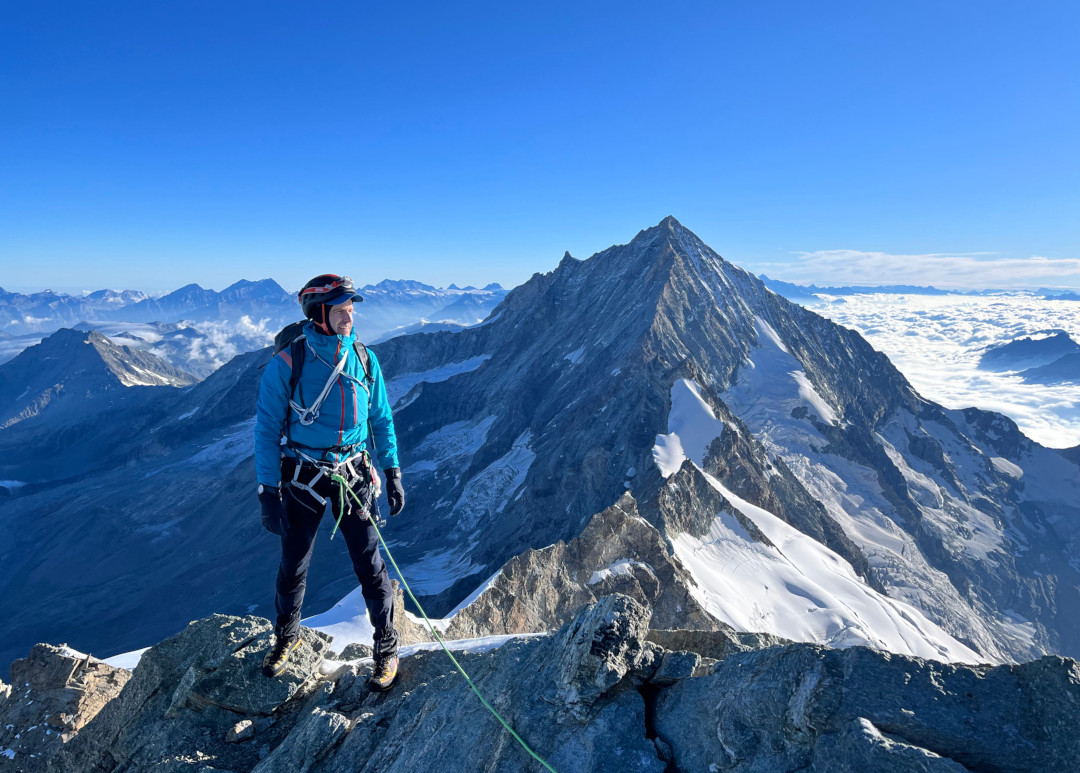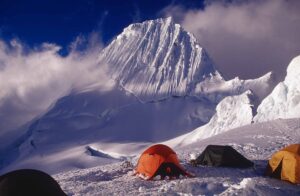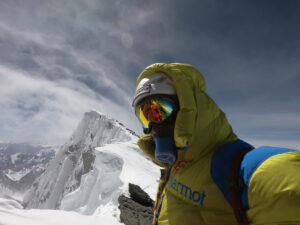Raw and honest feedback is a powerful tool and crucial for success on an expedition. Read about the leadership and feedback skills on successful expeditions.
I am at 8,250 meters high on Mount Everest. The climb is steep and rocky in the claustrophobic thin air. One wrong step, and I could slide two kilometers down towards a certain end. Ahead of me, a woman loses her oxygen bottle. The cylinder-shaped 5 kg tube accelerates like a cruise missile, narrowly missing several protruding rocks that, upon collision, would have exploded like a bomb. Further down, several climbers are in the line of fire. If the bottle hits them, it will knock them out. They will die. The bottle narrowly misses them…
The guilty woman shrugs nonchalantly. I reprimand her and critique her behavior, not her as a person. Fifteen years later, the woman recalls the incident, stating that she hadn’t understood the severity of the situation if I hadn’t been firm, direct, and clear. The story serves as a reminder that sometimes feedback must be sharp to be effective because knowledge isn’t the same as insight. Climbing expeditions give us insight into how feedback in extreme environments can be a matter of life and death.
In today’s society, where political correctness and fragile feelings may dominate discussions on communication and leadership, it can be refreshing to look towards a more raw and unpolished form of feedback. A world where the words “life and death” aren’t hollow phrases, and where effective communication is crucial for survival. This is the reality at 8,000 meters in mountains, where complex and risky situations are commonplace.
In mountain climbing, risks are always present. A single misjudgment can lead to catastrophe, a single incorrectly tied knot out of a thousand possible during an expedition can lead to death. This is why feedback is vital for survival. But the feedback given and received in these environments is often far from the formal and cautious processes we see in the office.
In the mountains, feedback is direct and unpolished. There’s no time for beating around the bush or excessive diplomacy. When a climber stands on a ridge as sharp as a knife’s edge, they must be clear and honest in their communication. This is not the place to disappoint anyone. It’s the place to ensure that everyone knows what’s required and uses the right techniques.
I am on the 8,000-meter peak of Dhaulagiri in Nepal. I ask Pemba Sherpa, who has done his rotation up the mountain, how many gas canisters are at camp three. “Five,” says Pemba. When I step into camp three at 7,000 meters a few days later, there are indeed five canisters there. It’s just that three of them are empty, and two are half-full. The surprise could have cost me dehydration and put me in an emergency situation because propane/butane gas is needed to melt water, and the body needs a lot of water at 8,000 meters…
Pemba had indeed answered the question but hadn’t thought a step further: Empty canisters serve no purpose and weren’t what I had asked for. Thus, our survival was at risk. The feedback was that I needed to be clearer in communicating what I meant, and Pemba needed to learn to take holistic responsibility. We must be prepared to hear things we may not like or want to hear. But we know it’s said for a reason – to keep the team alive.
Raw and honest feedback is a powerful tool and crucial for success on an expedition. Lessons from extreme environments can be invaluable for leaders. Being direct and focused on the goal can help your team reach new heights. Being clear and predictable lets your employees know what’s expected of them. This is especially useful in crisis situations where there’s no room for error. So, the next time you give or receive feedback, remember that “No offense taken” might be the key to success.
About Fredrik Sträng: Fredrik, in his leadership role, has climbed seven of the Earth’s fourteen 8,000m peaks, set a Guinness World Record, and lectures on leadership, communication, decision-making, and crisis management.
Sincerely
Fredrik Sträng
Alpinist – Speaker – Coach







